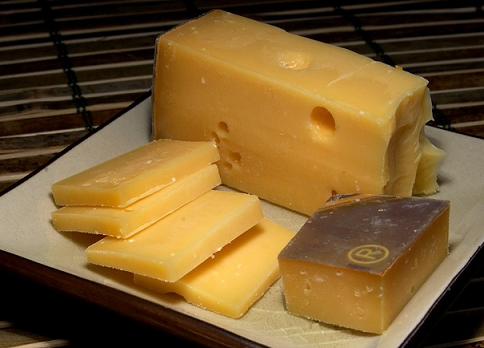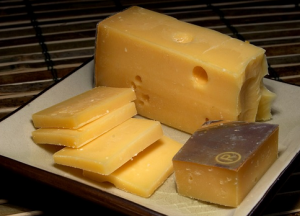Chickens are really enthusiast eaters and you most certainly love spoiling your favorite pets! Not only are they fun but they also provide your family with fresh and healthy eggs every day! So, you surely want to repay them with tasty treats. While thinking of new and fun treats for them, the following question might have crossed your mind: can chickens eat cheese? Yes, they can eat cheese but never in big portions and on rare occasions.
Can Chickens Eat Cheese? In What Amounts?
Your chickens will most probably enjoy being given cheese as treats. Moreover, this food is a good source of calcium and proteins. However, bear in mind that it is fatty and you should not feed it exccesively. It may be too harsh for their digestive system, so if you’re planning on including cheese treats in your chicken’s diet, keep them in small quantities.
Should I Feed My Chickens Dairy Products?
We have concluded that giving your chickens limited cheese treats is fine but what about other dairy products? Are they safe for your feathered pets? Giving your chickens dairy products such as milk or yogurt might not be a very good idea. Not on a regular basis whatsoever. Chickens’ bodies do not present the proper enzymes in order to digest milk sugars. However, occasionally spoiling your pets with some yogurt or milk is okay. Milk consists 87 percent of water, therefore occasionally pampering your chickens with milk is not dangerous. Nonetheless, keep in mind that high amounts of milk products can be genuinely harmful for their digestive system, causing diharrea. You ought to pay attention to the way your chickens might react to the new foods.
How to Help Your Feathered Pets Survive Hot Weather?
High temperatures can be really dangerous for your chickens. Therefore, you ought to take the proper measures in order to help them cope with the heat. High temperature may lead to heat strokes, heat-induced stress, and even death. Think about how difficult it can be sometimes for us humans to deal with extreme temperatures! Imagine the torment your chickens are going through! Here are a couple of suggestions in order to prevent detrimental effects from occurring in your flock.
- In case of exceeding temperatures, always keep a bucket full of water in the coop. If you notice signs of drowsiness, panting or lethargy, you need to stick the chicken in the bucket up to its neck in order to bring its body temperature back to normal.
- When thinking about the location of the coop, keep in mind that your chickens need to have both sunlight and shade during all seasons. Sunlight is utterly important for the egg production, while shade is vital during the hot season. So, consider a location that embodies both factors: natural light and shade. These are equally important for your chickens’ health.
- Bring the water can close to your chickens. Perhaps if the water is too far away in distance, your chickens won’t venture themselves to “travel” till they reach it. When it’s really hot outside, they are not that energetic. Make sure in case of extreme temperatures to bring the water in the shade so that your chickens can chill on a hot summer day. Moreover, keep the water cool by replacing it often. The chances that they will hydrate themselves accordingly are higher if the water is fresh and cold. You should know that during the hot season, your chickens’ droppings will be more liquid. This is a result of high intake of water. So don’t worry if you notice that. There’s nothing wrong with your feathered pets!
- You may also keep the water cold for a longer period of time by adding ice to the water cans during the day.
- Try spraying their netted area with water throughout the day.
- If the temperatures are extremely high, you should consider blocking the access to the nest boxes. Improvise a temporary nest in a cooler location. You can use a large basket for instance, if the nesting area is too hot. Also, a wooden box can do the trick. There are plenty of solutions if you are open for improvisations!
- Instead of using straws for your flock’s bedding, try replacing it with sand, as plain grade sand does not retain heat and it will function as a heat-reliever for your chickens. Additionally, it gives your chickens the chance to clean their overheated skin, sand absorbs excessive moist and oil.
- Provide your pets with cooling treats. Just as we humans enjoy large amounts of ice cream during the hot seasons, your feathered pets will benefit greatly from cooling snacks. For instance, frozen fruit are a great option; they will cool down your chickens while at the same time hydrating them! Watermelon also does the trick for that matter.
References:
http://www.rentacoop.com/Chicken-Treats.html
http://stephaniedayle1.blogspot.ro/2014/01/what-can-i-feed-my-chickens.html
http://www.fresheggsdaily.com/2013/02/toxic-treats-what-not-to-feed-your.html
http://www.backyardpoultrymag.com/are-chickens-lactose-intolerant/
http://www.the-chicken-chick.com/
http://extension.usu.edu/files/publications/publication/AG_Poultry_2008-02pr.pdf









Leave a Comment